The Basque whaleboat is a testament to the region’s rich maritime heritage. Its distinctive oak construction and streamlined design allowed Basque whalers to navigate the treacherous Atlantic waters for centuries. This deep connection to the sea is mirrored in the Basque cider house experience, where visitors can enjoy the traditional farmhouse cider culture and savor local specialties. Exploring these cultural elements provides a unique glimpse into the Basque heritage, blending nautical innovation and culinary traditions.
- Key Points
- Basque Whaling History and Legacy
- Basque Whaleboats: Craftsmanship and Design
- Cider Culture and Traditions in the Basque Country
- Discovering the Reconstruction of the San Juan Whaling Ship
- Taking in the Basque Cider House Experience
- Local Specialties and Cuisine at the Cider House
- Exploring Albaola: The Sea Factory of the Basques
- Frequently Asked Questions
- Is the Activity Suitable for Children?
- Can Dietary Restrictions Be Accommodated?
- What Is the Cancellation Policy for the Activity?
- Is Transportation Provided to and From the Meeting Point?
- Can the Tour Be Conducted in Other Languages Upon Request?
- The Sum Up
- More Tour Reviews in Basque Country
Key Points
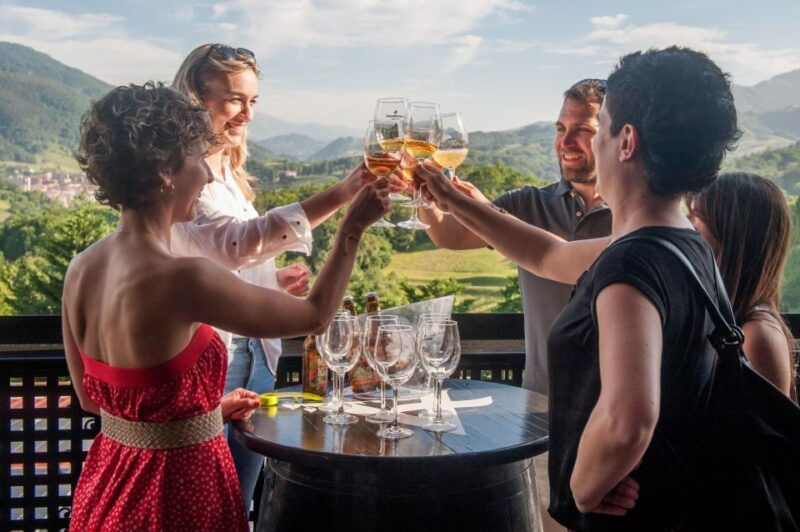
- Basque whaleboats were expertly crafted from oak, designed with streamlined hulls for enhanced maneuverability in the treacherous Atlantic waters.
- Cider was a significant part of Basque sailors’ diet during whaling expeditions, with consumption up to 3 liters daily.
- The reconstruction of the historic San Juan whaling ship at the Albaola Sea Factory offers insights into Basque maritime heritage and whaling traditions.
- Visiting a traditional Basque cider house allows visitors to sample various cider varieties and learn about the cider-making process.
- The authentic Basque cider house experience includes tasting cider paired with regional specialties like salted cod and T-bone steak in a rustic ambiance.
Basque Whaling History and Legacy
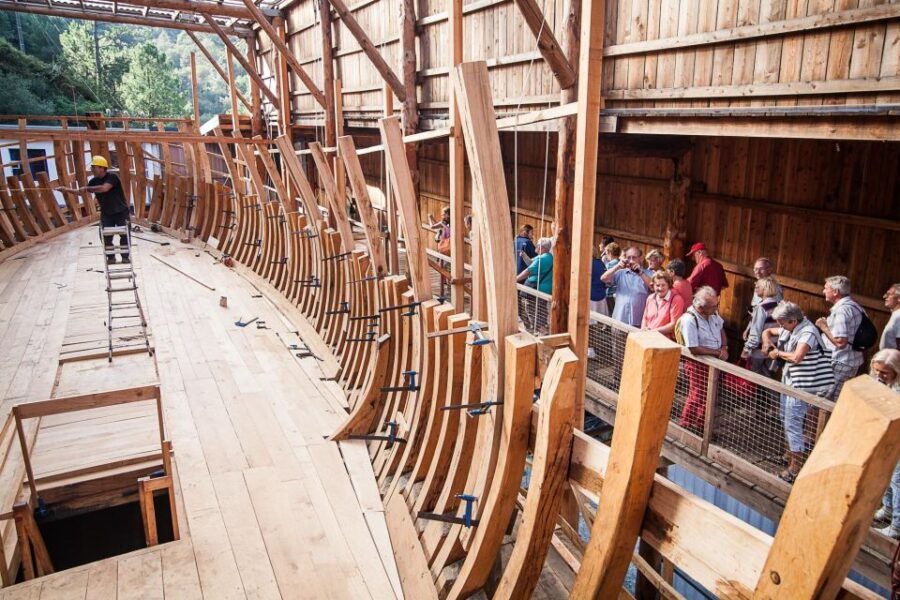
Although Basque sailors and whalers had engaged in expeditions to Newfoundland since the 16th century, their rich whaling history and legacy remain largely unknown to many today.
These explorers were among the first to venture across the Atlantic, establishing whaling operations that thrived for centuries. They built specialized whaleboats and developed innovative techniques, allowing them to hunt the mighty beasts with remarkable efficiency.
Cider, an integral part of the sailors’ diet, fueled their adventures, with each man consuming up to 3 liters daily.
This unique Basque maritime tradition lives on, offering a captivating window into the past.
Looking for more options in Basque Country? We've reviewed plenty of other experiences.
Basque Whaleboats: Craftsmanship and Design
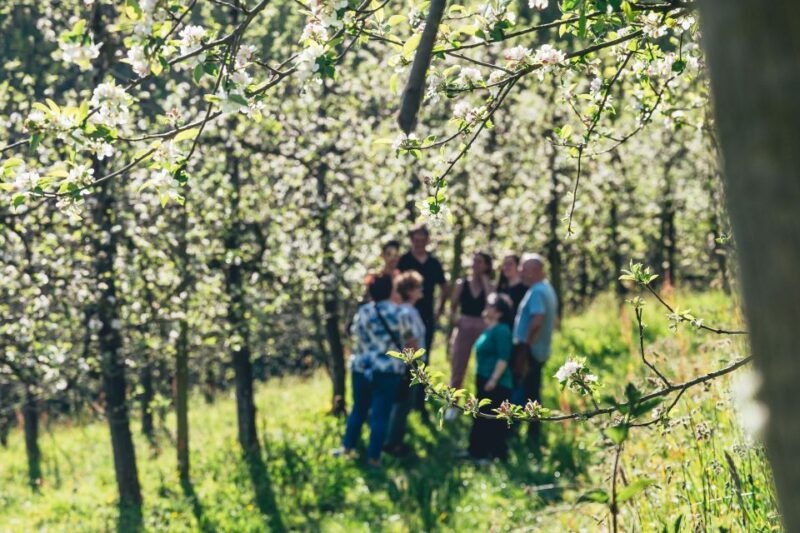
Basque whaleboats were the pinnacle of maritime craftsmanship, embodying the ingenuity and skill of these seafaring people.
Meticulously constructed from oak, these boats were designed to withstand the treacherous Atlantic waters. Their sleek, streamlined hulls and robust frames enabled them to navigate through the roughest seas with speed and stability.
Sailors relied on the whaleboats’ maneuverability to hunt the massive whales, working in coordinated teams to harpoon and haul their catch.
The Basque whaleboats’ maneuverability enabled sailors to hunt massive whales through coordinated harpoon and hauling efforts.
The construction process, passed down through generations, showcased the Basque people’s deep connection to the sea and their mastery of traditional boatbuilding techniques.
Cider Culture and Traditions in the Basque Country
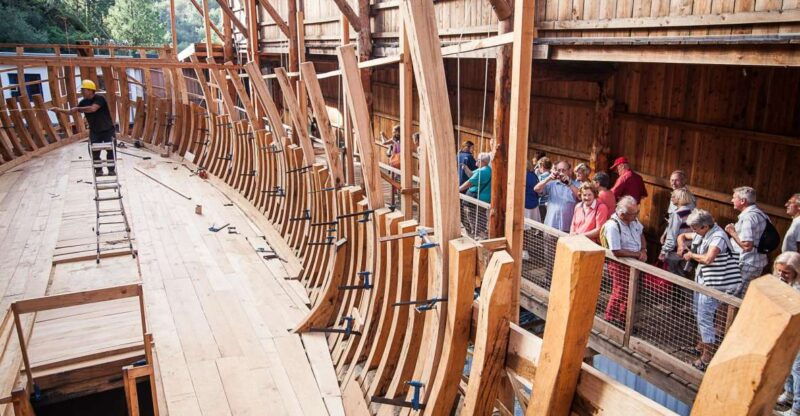
Cider has long been a cherished part of Basque culture, deeply rooted in the region’s agricultural heritage.
Sailors on whaling expeditions to Newfoundland consumed up to 3 liters of cider daily, primarily sourced from local Basque farmhouse cellars. This cider tradition continues today, with visitors enjoying tastings at traditional cider houses.
During the experience, guests learn about the history and production of this beloved Basque beverage. Lunch at the cider house features local specialties like salted cod and T-bone steak, complementing the crisp, refreshing cider.
Savoring Basque cider is an essential part of immersing oneself in the region’s rich cultural tapestry.
Discovering the Reconstruction of the San Juan Whaling Ship
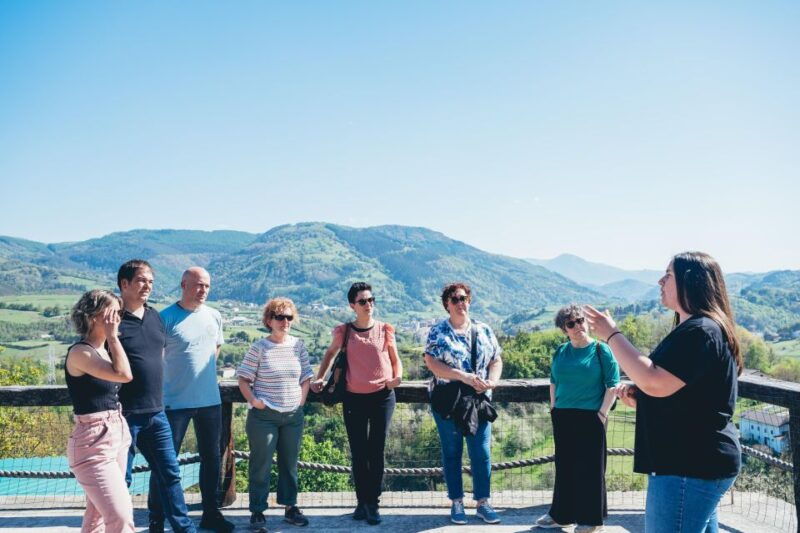
Visitors exploring the Basque Whaleboat and Cider House experience also have the chance to discover the reconstruction of the historic San Juan whaling ship.
The San Juan sank off the coast of Canada in the 16th century during a Basque whaling expedition. At the Albaola Sea Factory, guests can view the painstaking reconstruction of this iconic vessel, learning about the craftsmanship and techniques used by Basque sailors centuries ago.
This offers a unique insight into the maritime heritage and whaling traditions of the region, complementing the hands-on experiences with the traditional whaleboats and visits to the local cider houses.
More Great Tours NearbyTaking in the Basque Cider House Experience
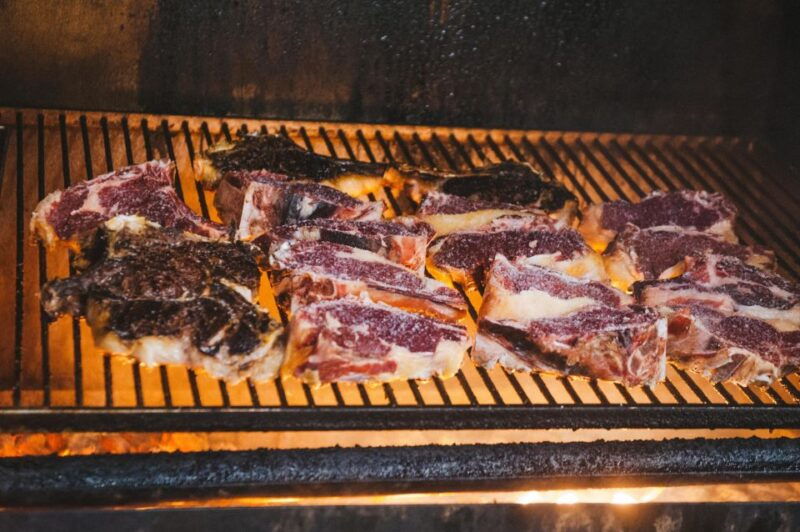
One of the highlights of the Basque Whaleboat and Cider House experience is the immersion in the traditional Basque cider house. After exploring the Albaola Sea Factory, guests are taken to a local cider house for an authentic cider tasting and lunch. The cider tasting allows visitors to sample various cider varieties and learn about the traditional cider-making process. The cider house menu includes regional specialties like salted cod and T-bone steak, providing a delightful culinary experience. This cider house visit offers a glimpse into the Basque people’s rich cultural traditions and their relationship with cider.
| Cider Varieties | Tasting Notes | Pairing Recommendations |
|—————–|—————|———————–|
| Seca | Dry, crisp, with apple notes | Salted cod, T-bone steak |
| Dulce | Sweet, fruity, with hints of honey | Chorizo, Idiazabal cheese |
| Naturala | Lightly carbonated, with a balanced acidity | Grilled meats, vegetable dishes |
| Txotx | Traditional cider poured from the barrel | Ideal for sharing and socializing |
| Sagardo Beltza | Rich, full-bodied, with a deep color | Hearty stews, roasted meats |
- Wine Tasting at Calado EL Guallavero
- Private Transfer From Bilbao Airport to San Sebastian City
- Organic Winery Visit With Tasting in Bilbao
- Arrival Private Transfers: Bilbao Airport BIO to Bilbao City in Luxury Van
- Private Transfer From Bilbao Airport to San Sebastián
- Basque Press Farm and Traditional Cider House With Transport
Local Specialties and Cuisine at the Cider House
The cider house visit also provides an opportunity to savor the local Basque cuisine. Guests indulge in traditional specialties like salted cod and hearty T-bone steak.
These regional delicacies are expertly prepared using time-honored recipes and locally-sourced ingredients. The cider pairing enhances the flavors, creating a harmonious dining experience that reflects the rich culinary heritage of the Basque Country.
Visitors relish the rustic ambiance of the cider house, seeing the authentic atmosphere as they enjoy a satisfying meal complemented by the region’s renowned alcoholic beverage.
Exploring Albaola: The Sea Factory of the Basques
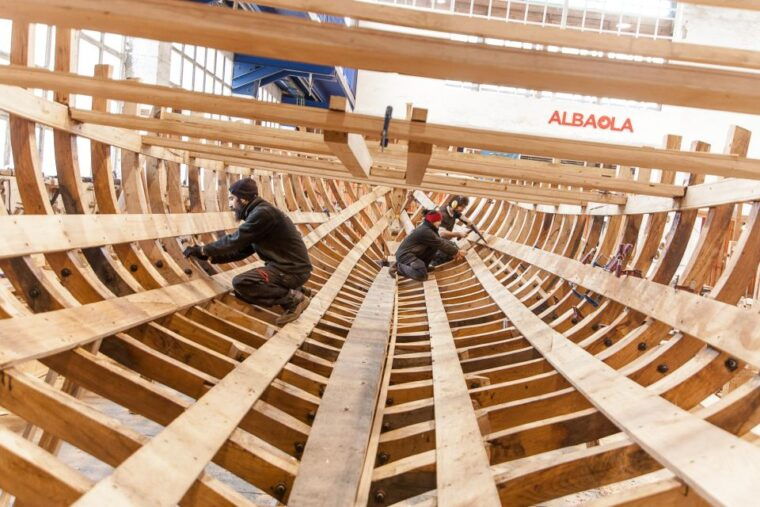
After exploring the history and traditions of Basque cider making, the experience takes visitors to Albaola, the Sea Factory of the Basques.
At this unique museum, guests learn about the Basque whaling tradition and the construction of 16th-century whaleboats.
They’ll see the reconstruction of the San Juan, a whaling ship that sank off Canada’s coast.
The guided tour provides insights into the lives of Basque sailors who traveled to Newfoundland in search of whales, often consuming up to 3 liters of cider daily.
The experience brings the past to life, immersing visitors in Basque maritime heritage.
Frequently Asked Questions
Is the Activity Suitable for Children?
The activity may not be suitable for children. It involves a cider tasting and traditional cider house menu, which may not be appropriate for minors. However, the company could accommodate families with alternative non-alcoholic options upon request.
Can Dietary Restrictions Be Accommodated?
Yes, the tour can accommodate dietary restrictions. Guests should notify the operator in advance, and the cider house will provide alternative menu options to suit any dietary needs or preferences.
What Is the Cancellation Policy for the Activity?
The activity offers free cancellation up to 24 hours in advance for a full refund. This flexible policy allows customers to change their plans without penalty if needed.
Is Transportation Provided to and From the Meeting Point?
Yes, transportation is provided. The activity includes pickup and drop-off at the meeting point outside Koh Tao Bar in San Sebastian, according to the information provided.
Can the Tour Be Conducted in Other Languages Upon Request?
The tour can be conducted in Spanish, English, French, and Basque upon request. The experience includes pickup and drop-off at the meeting point, guided tours, and a traditional cider house lunch.
The Sum Up
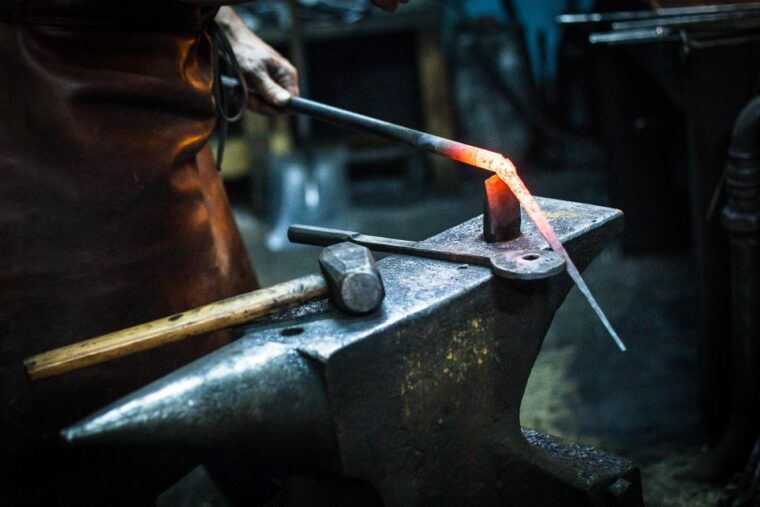
The Basque whaleboat and cider house experience offer an immersive glimpse into the region’s rich maritime heritage and culinary traditions. From the oak-crafted whaleboats to the time-honored cider-making process, these cultural elements showcase the Basque’s deep connection to the sea and land. Visitors can savor this unique blend of nautical innovation and local gastronomy, leaving with a profound appreciation for the enduring legacy of Basque culture.
You can check availability for your dates here:More Tour Reviews in Basque Country
- Private Tandem Paragliding Flight in Bizkaia
- Basque Whaleboat and Traditional Basque Cider House
- Basque Whaleboat and Traditional Basque Cider House
- Basque Press Farm and Traditional Cider House With Transport
- Private Transfer From Bilbao Airport to San Sebastián
- Arrival Private Transfers: Bilbao Airport BIO to Bilbao City in Luxury Van
